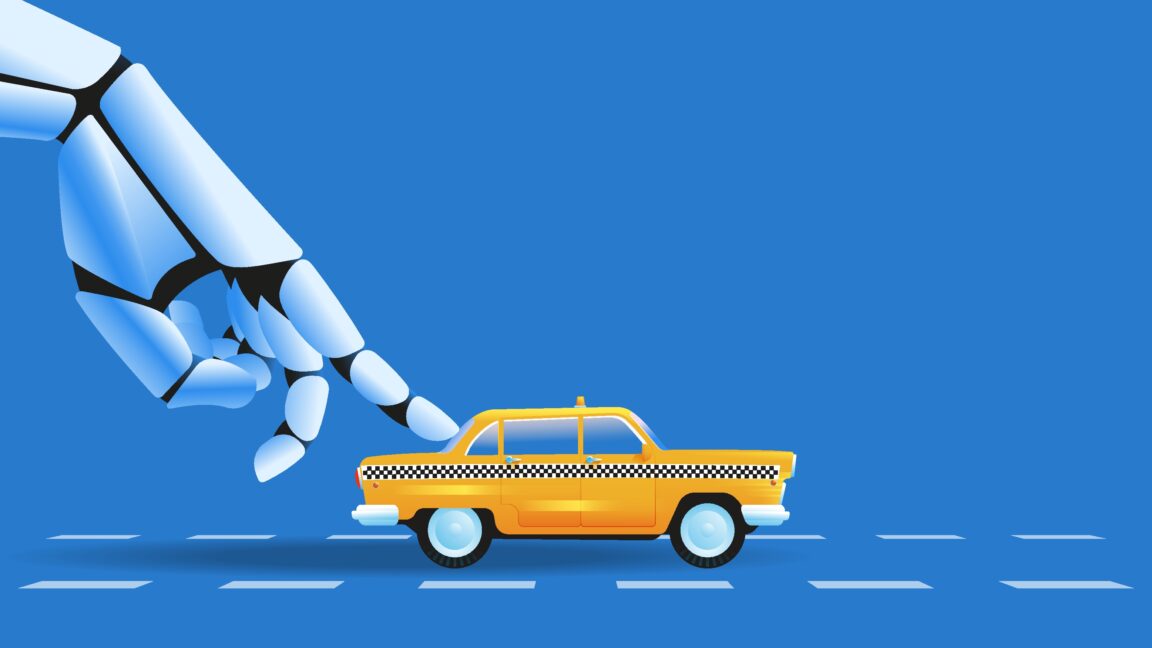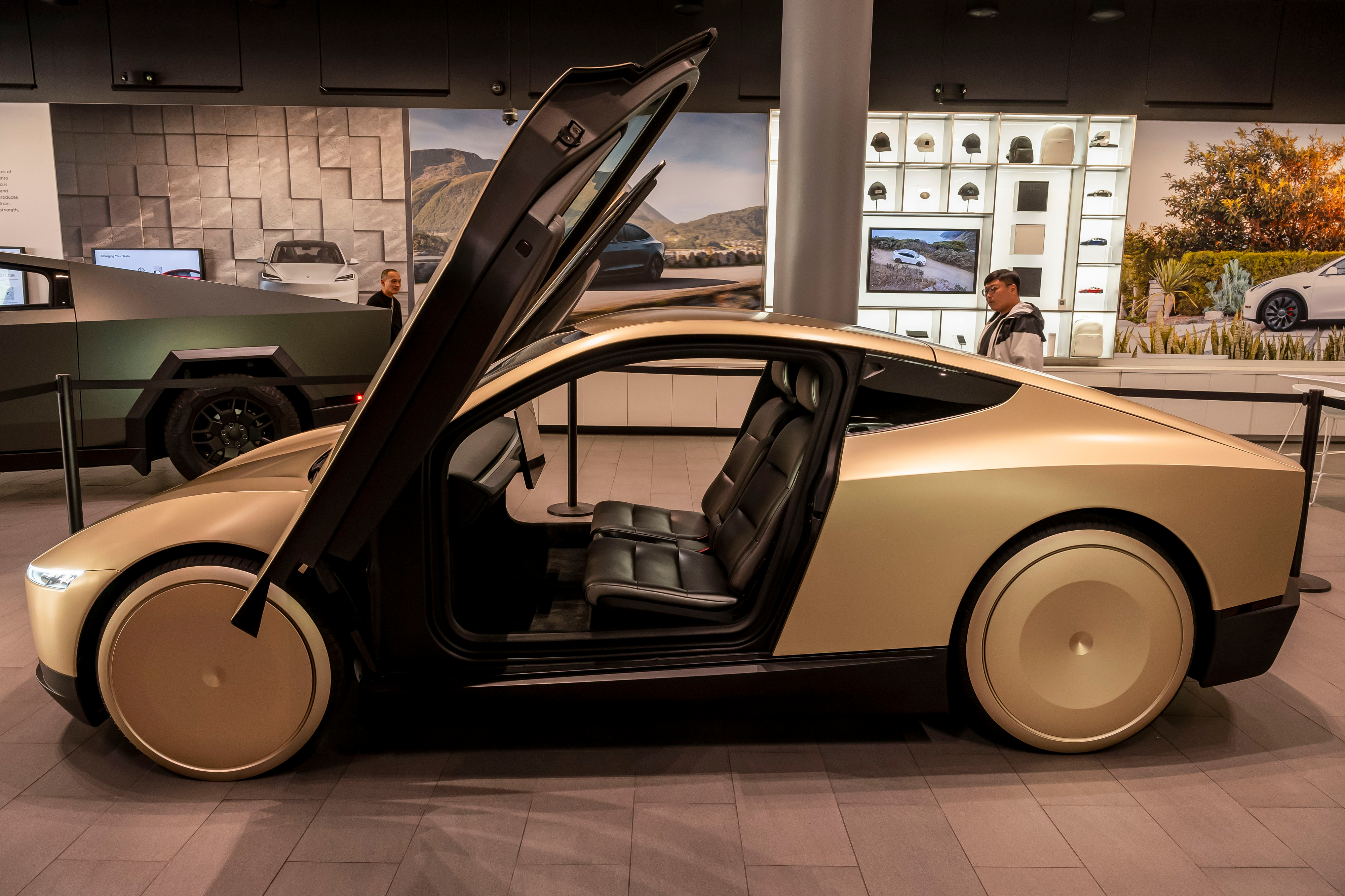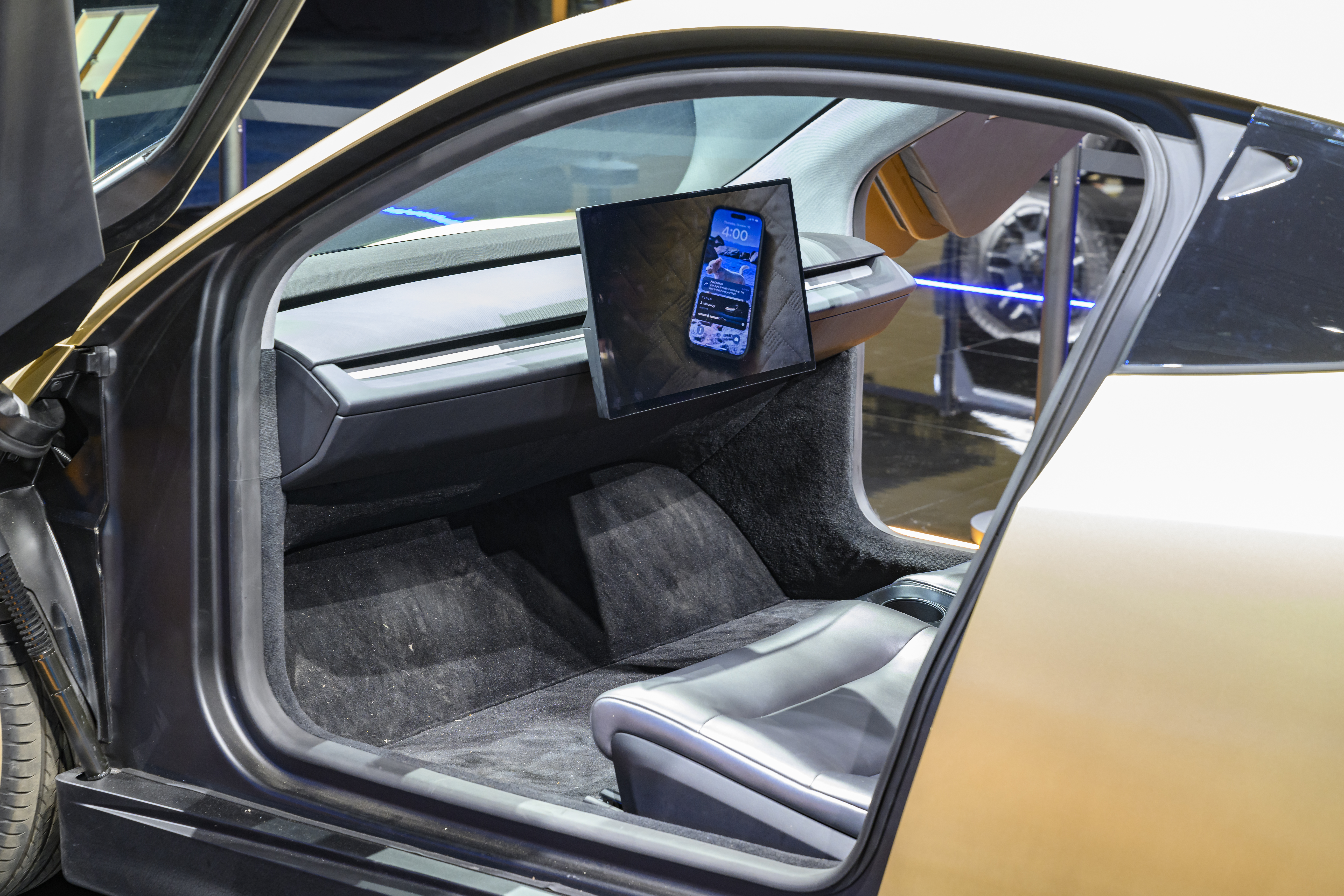
Credit: Getty Images
"We are an AI, robotics company," Tesla CEO Elon Musk announced last April. Despite the fact that the company's revenues are overwhelmingly derived from selling new electric vehicles, such prosaic activities hold no luster for the boss. Instead, Tesla's future, according to Musk, depends upon a (claimed) sub-$30,000 driverless two-seater, revealed to the world last October in a staged demonstration on a film set. But Musk's plans just hit a snag: The company must find some new names.
As spotted by Sean O'Kane at TechCrunch, the United States Patent and Trademark Office has informed Tesla that it will not be allowed to trademark the word "robotaxi" to describe the vehicle. According to the USPTO, the term is far too generic. Indeed, a Google n-gram search shows a steady growth in the use of "robotaxi" starting more than a decade ago.
According to the USPTO, the term is merely descriptive. The agency cites evidence from Wikipedia, The Verge, and the Amazon-backed autonomous vehicle startup Zoox in its denial of Tesla's trademark application.

Maybe they should just have called it the Teslapod.
Credit: David Paul Morris/Bloomberg via Getty Images
Tesla could challenge this decision, but it would have to show the USPTO all the product's marketing materials, brochures, and manuals that intend to use the name. If those aren't available, Tesla must explain to the patent and trademark office's satisfaction how this product will differ from others, with detailed specifics, not generalities. Tesla must also explain whether the car features robotic systems and whether any of Tesla's competitors use "robo," "robot," or "robotic" to describe their own goods and services—the fact that Zoox refers to its autonomous pods as robotaxis will be very inconvenient for Tesla.
It's not the first time that Tesla has been accused of a lack of originality. Alcon Entertainment sued Warner Brothers and Tesla after it refused them permission and adamantly objected to WB's and Tesla's attempt to link the vehicle with vehicles seen in Blade Runner 2049. Although Tesla attempted to get the case dismissed, in April, the court ordered the parties to enter into mediation.
Nope, that’s not original, either
Perhaps even more inconveniently for Tesla, it will have to find a new name for the car itself. Tesla's attempt to trademark "Cybercab" was also rejected in large part due to the potential for confusion. Although Tesla applied for a trademark last October after revealing the vehicle, several other companies have previously registered Cyber- prefix trademarks, including one for "Cybercab" issued earlier in 2024.

The vehicle has neither room nor controls for a safety operator.
Credit: Sjoerd van der Wal/Getty Images
Next month, Tesla intends to deploy the two-seat EVs to Austin, Texas. The vehicles lack an actual steering wheel, so they won't conduct this testing with human safety operators on board; instead, Tesla will rely on teleoperation to handle problems that are too complicated for its AV stack to work out.
Those operators will probably be quite busy—last year, independent testing showed that Tesla's "FSD" system averaged one human intervention every 13 miles, and there are numerous open investigations by the National Traffic Highway Safety Administration into Tesla's driver assist systems, which only use monovision optical cameras and can be fooled by bright sunlight—and even, like Wile E. Coyote, a painting of a road.
Then again, perhaps as boss of DOGE, Musk will just use his "special government employee" status to bring the USPTO to heel, purging it of the experts needed to regulate his business, just as he did at NHTSA.

-
 C114 Communication Network
C114 Communication Network -
 Communication Home
Communication Home


